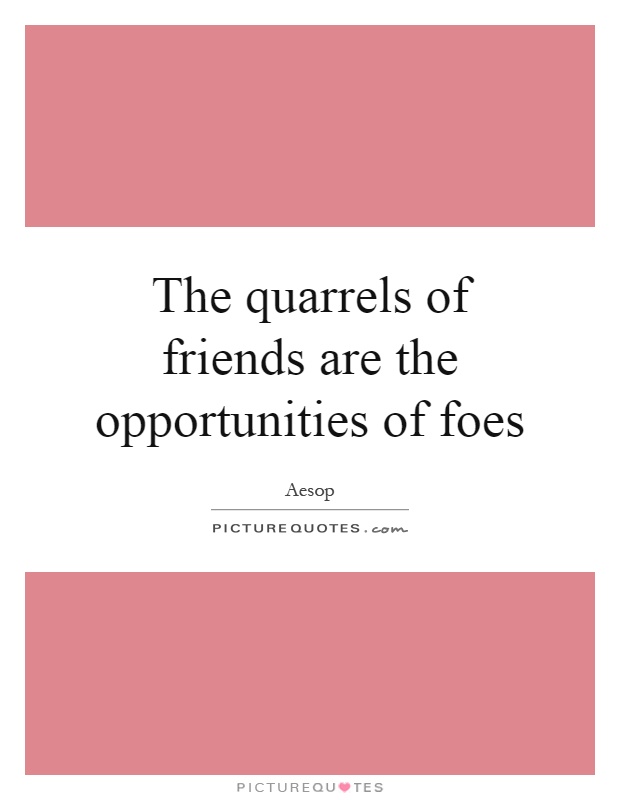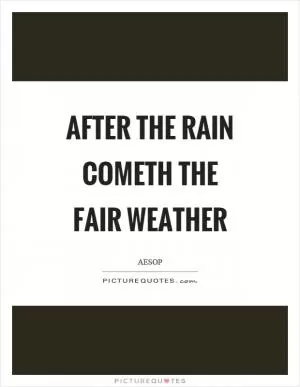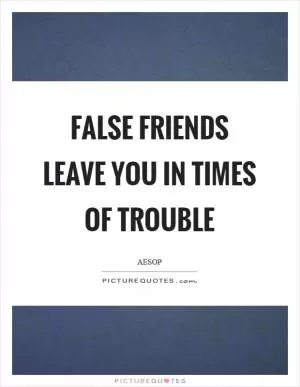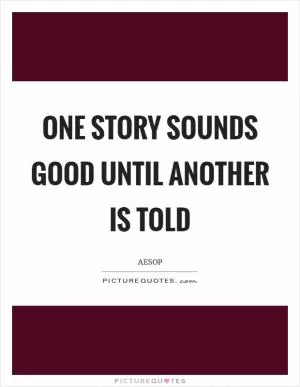The quarrels of friends are the opportunities of foes

The quarrels of friends are the opportunities of foes
In the fables of Aesop, the ancient Greek storyteller, there are many tales that illustrate the consequences of quarrels among friends. One such fable is that of "The Lion and the Mouse," where a lion spares a mouse's life, only to have the mouse later save the lion from a trap. This story teaches us that even the smallest of creatures can be of help in times of need, and that kindness and forgiveness can lead to unexpected alliances.The saying "The quarrels of friends are the opportunities of foes" can be seen in many of Aesop's fables, where characters who were once friends turn against each other due to misunderstandings or disagreements. In the fable of "The Fox and the Stork," the fox tricks the stork into eating from a shallow dish, while the fox can easily lap up the food. The stork, feeling humiliated, later gets revenge on the fox by serving him soup in a narrow-necked jar, which the fox cannot eat from. This fable shows how a quarrel between friends can create an opportunity for one to take advantage of the other.
Another fable that illustrates this saying is "The Tortoise and the Hare," where the hare, overconfident in his speed, challenges the slow-moving tortoise to a race. The hare, taking a nap during the race, wakes up to find the tortoise has won. This fable teaches us that arrogance and underestimating others can lead to defeat, and that even the weakest can triumph over the strongest.
Overall, Aesop's fables show us the importance of friendship, forgiveness, and humility. The saying "The quarrels of friends are the opportunities of foes" reminds us that when friends fight, it creates an opening for enemies to take advantage. It is important to resolve conflicts peacefully and to treat others with kindness and respect, as you never know when you may need their help in the future.












 Friendship Quotes
Friendship Quotes Love Quotes
Love Quotes Life Quotes
Life Quotes Funny Quotes
Funny Quotes Motivational Quotes
Motivational Quotes Inspirational Quotes
Inspirational Quotes